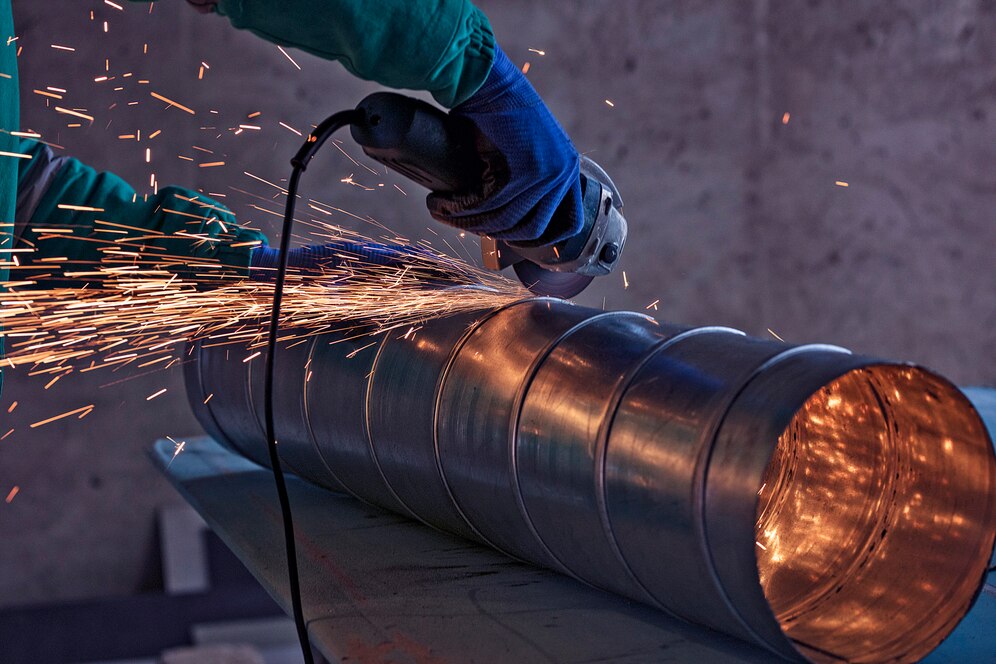
Top Reasons Steel Rolling Mills Drive the Metal Manufacturing Industry
Manufacturing in steel has long supported the development of worldwide infrastructure, but methods are not the same in effectiveness or suitability. A lot of companies find it difficult to respond to demand, prevent wasted resources, and control their costs without adequate technology. Other ways can’t compete with the speed, accuracy, and the amount of materials steel rolling mills put into the market today. Today, these facilities are crucial throughout the large-scale supply chains such as those used in every main steel mill in Saudi Arabia for structural output.
Why Steel Rolling Mills Are Crucial to the Industry
Steel rolling mills change unshaped billets and slabs into usable products using heat and pressure. This guarantees that materials comply with the structural needs of many industries. Using rolling technology, beams, bars, and rods can be given precision shapes without becoming weaker.
High Production Volume with Cost Efficiency
Steel rolling mills are designed to run at full capacity at the lowest possible cost. For this reason, they are perfect for industries where being on time, accurate, and affordable matters a lot. They allow large steel production to happen continuously, reducing both the cost of work and resources.
Today, most mills are automated, enabling operators to adjust them instantly and in real time. Thus, a steel company in Saudi Arabia has pushed to upgrade its rolling processes to ensure it can produce at a lower price while being productive.
Consistent Quality and Dimensional Accuracy
All parts of the automotive, aerospace, and construction industries require steel components to be exactly the right size. Rolling mills deliver excellent, tight tolerances for quality parts.
Unlike other forms, rolled steel is formed when it is repeatedly compressed. As a result, the metal gains greater density and strength. That’s why businesses can expect fewer flaws and a consistent level of performance from their products.
Wide Range of Steel Products
Rolling mills are prized for their ability to do many things well. They work with different types of steel, making plates, coils, TMT bars, I-beams, angles, and channels possible.
Because of this diversity, producers can support many industries using the same processes and existing equipment. Any large-scale steel rolling mill must be flexible enough to satisfy the requirements of markets around the globe.
Reduced Waste and Improved Sustainability
Rolling mills offer a positive alternative for industries wanting to reduce their environmental impact. Making parts by rolling is energy efficient and creates less scrap than traditional casting or machining does.
Closed-loop systems assure that heat energy is returned to the system, and the added benefit of continuous casting eliminates much waste left behind after the first pass. Steel manufacturers who focus on sustainability gain from the greener outcomes of today’s rolling methods.
Whenever green mandates and money-saving methods overlap, as in many steel mills in Saudi Arabia, this method provides long-term value.
Supports Rapid Industrial Growth and Infrastructure
These economies need strong, flexible materials that can be used in many applications. Steel rolling mills can make both strong construction and high-quality materials.
Areas of the Middle East that are urbanizing rapidly require streamlined steel to help build roads, airports, irrigation systems, and structures for businesses. An innovative steel company in Saudi Arabia will pay attention to staying ahead in rolling technology to adjust to urban development and growth.
Enables Technological Integration and Innovation
These latest rolling mills go beyond their mechanical use and act as smart production centers. The use of IoT sensors, AI, and live monitoring makes it possible to maintain good production quality without ongoing human supervision.
As a result, companies can perform predictive maintenance, monitor their efficiency, and make informed decisions based on their data. This shifts the steel mill from simply reacting to pushing the production process forward with ease. For this reason, these innovations are attractive to manufacturers ready to protect their investments, such as big steel rolling mills in Asia and the Gulf.
Boosts Export Capabilities and Global Trade
As many nations want their supply chains to be closer to their countries or find proven traders, steel manufacturers with advanced rolling facilities are in a better position.
The production of high-quality, standard steel grants manufacturers increased opportunities for exporting their goods. In economic regions like the GCC, a steel company in Saudi Arabia with an advanced rolling plant can easily serve both the nearby region and international markets.
Better Customization for Industry-Specific Applications
In many niche markets, custom steel shapes and details are required by design. Rolling mills can modify the dimensions, profiles, and types of alloy to meet precise project requirements.
The control given allows manufacturers to handle everything from big batch orders to single-piece requests. Since this is the best way to customize production, the country’s top steel mills use this method.
Conclusion
Globally, steel rolling mills continue to lead the way in progress, productivity, and making metal manufacturing more sustainable. The ability to be accurate, flexible, and scale up is why they surpass other methods. To improve your steel production, check out the market-leading, technologically advanced rolling mill options from RMT Tools. Contact us if you want to understand how your business stands to gain from us.
Leave Your Comment